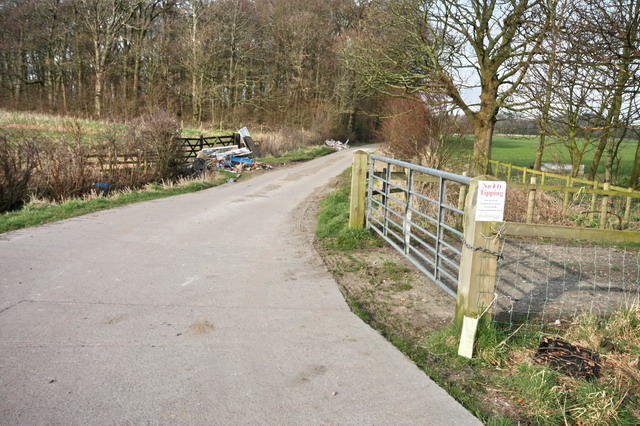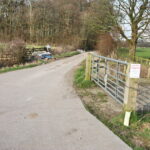Abstract: It is essential that today’s younger generation comprehend the interconnectedness of human activities and the health of natural ecosystems. This article presents perspectives on eco-literacy for planetary resource conservation and management, guiding readers in navigating the basic sustainability principles and practices. By prioritizing practical biodiversity conservation, society can ensure that youngsters are prepared to use natural resources responsibly and preserve the planet for future generations. Gen Z requires digital, financial, media, human, and diversity and representation literacy to navigate today’s complex personal and professional challenges that are crucial in the digital age [1-3]. Navigating reliable digital resources and evaluating…...
Sign in with Google to continue reading
💬 Meet Our Members

Julia Orozco
Poet who love nature and writing poetry.
Tamizh Ponni VP
Tamizh Ponni VP is an ambivert who loves to express her skills…

Dr. B.H.S Thimmappa
B.H.S. Thimmappa is a seasoned chemistry professional with extensive experience in developing…

Abhinaba Maitra
Abhinaba Maitra is a Kolkata-based writer with a background in software engineering.…

Sindhu Gopalkrishnan
I love writing as I get to create something beautiful and touch…

Khushi Barman
I'm a 22-year-old Indian psychology student. I have a strong interest in…
Support independent journalism. Your membership keeps us going.
Abstract: It is essential that today’s younger generation comprehend the interconnectedness of human activities and the health of natural ecosystems. This article presents perspectives on eco-literacy for planetary resource conservation and management, guiding readers in navigating the basic sustainability principles and practices. By prioritizing practical biodiversity conservation, society can ensure that youngsters are prepared to use natural resources responsibly and preserve the planet for future generations.
Gen Z requires digital, financial, media, human, and diversity and representation literacy to navigate today’s complex personal and professional challenges that are crucial in the digital age [1-3]. Navigating reliable digital resources and evaluating online information to avoid scams and protect personal information, comprehending economic principles like compound interest and inflation to make informed financial decisions or avoid potential debt spirals, effective and instant communication, critical thinking to analyse and validate information, responsible online behavior, recognizing the diverse forms and media biases and actively seeking out stories and content from marginalized groups in the media landscape. They need to understand the social factors that influence message perception in the digital world.
Natural resource conservation and management are essential to ensure the sustainable availability of natural resources (forests/wetlands) for current and future generations, maintaining ecological balance and health, preserving rich plant and animal biodiversity, promoting equitable distribution through proper resource management, and mitigating human-induced environmental damage (pollution/climate change). By implementing responsible and sustainable practices, societies can support ongoing economic development and protect the planet's life-support systems. A core perspective is the understanding that the interconnectedness of all organisms to entire ecosystems is part of complex, interwoven natural systems, and human actions can have cascading effects across the entire system [4-6]. A holistic view recognizes that human communities, natural processes, and even individual thoughts are all part of a single living system. Living sustainably within ecological limits involves applying natural principles, such as cycles and flows (water/carbon/nitrogen/phosphorus/sulphur cycles), to human systems, such as creating circular economies and decentralized energy networks that operate sustainably [7,8]. A shift towards sustainable lifestyles and consumption patterns that reduce environmental impact, fostering a green and clean environment, and advocating for ecological imperatives is the need of the hour.
The objective of ecoliteracy education is to cultivate awareness of the fundamental causes of current environmental problems and the interdependent relationship between humans and nature [9-11]. Engaging students in outdoor activities and learning from natural systems helps develop ecoliteracy, reinforcing the practical application of biology concepts in daily life and fostering a sense of responsibility. Society-based solutions include collaborative work to better manage current environmental challenges, where humanity cooperates with nature, while moving away from actions that harm ecosystems. The perspectives emphasize that developing a deep understanding of our place in the natural world is not just about environmental preservation but is crucial for humanity's survival. Natural resource conservation ensures that non-renewable resources (fossil fuels) and renewable resources (forests) are not depleted, making them available for future generations. Preserving biodiversity helps safeguard various plant/animal species from extinction, maintaining the rich biodiversity. Proper resource management minimizes pollution, soil erosion, and the release of greenhouse gases, which are detrimental consequences of overexploitation. Nations can build stronger economies by conserving natural resources, leading to long-term economic growth.
The goal of environmental formal/informal education is to increase environmental literacy and empower individuals to make informed, sustainable choices, contributing to civic life for the well-being of society and the entire environment. Environmental literacy is the understanding of complex environmental systems (conditions and issues), appreciation for the natural world, and the ability to act on environmental issues, involving environmental knowledge, problem-solving, critical thinking, and decision-making competencies, and engaging in environmentally responsible behaviors like consumption and transportation choices. It is essential to develop a sense of connection to and responsibility for the environment we live in and equip people to make sound choices about environmental issues and climate justice. Creating informed citizens who can contribute to sustainable development goals and the future by collective/individual actions to improve the environment, to make a positive local/global impact. An ecologically literate person seeks to minimize negative impacts on life-sustaining systems and maximize the positive value of their contribution to the collective welfare of current and future generations.
Climate Literacy in Education
It is a comprehensive understanding of all aspects of the climate system, including climate change, natural and human-caused factors affecting it, climate justice/emergency, and the impacts of climate change, enabling individuals/institutions to make informed decisions, develop and implement effective climate change solutions in broader contexts [12,13]. The individual and collective capacity to make responsible and informed decisions regarding actions that may affect the climate and accelerate behavioral changes (values/attitudes) for climate solutions with relevant practices and actions in their lives is equally important, aligned with safeguarding the Earth for future generations. Comprehensive teacher training in climate science and effective pedagogy is essential for conveying interdisciplinary environmental science content to students. This can be achieved, utilizing available resources like climate literacy frameworks, webinars, training programs, and educational toolkits, which can build capacity at all levels.
Water Literacy for All
Water literacy encompasses the knowledge, attitudes, and behaviors for individuals/societies to understand, manage, and use water resources sustainably and efficiently [14-16]. It involves knowing the water cycle, water resources, treatment processes, wastewater management, the importance of conservation, the impact of climate change on water, and the cultural/economic value of this precious and finite resource. Developing water literacy is crucial for addressing water scarcity, pollution, and the challenges posed by global climate change. It is essential to take appropriate actions to conserve water (e.g., fixing leaks or adopting water-saving /rainwater harvesting technologies) and support initiatives/policies for sustainable water management in the face of increased demand and pollution. It is important to prepare people to adapt to erratic rainfall, heatwaves, and groundwater level changes. It is inevitable to connect water use in agriculture and energy production to economic sustainability. A significant shortage of clean water and energy can cause serious public healthcare problems. Integrating water-related topics into school/college curricula and providing informal resources for families is an integral part of water literacy education. Engaging people through water workshops, online platforms, and awareness campaigns is vital to water conservation, management, and security. Shaping policies that promote responsible water use and protect water resources at local and global levels matters the most in the overall conservation efforts.
The ability to retain rainwater effectively and make adequate efforts to recharge aquifers to restore groundwater levels nationwide, along with the implementation of structured water security plans at the local level, must proceed in conjunction with ensuring safe and potable drinking water for the masses. Incidents of tragic episodes of water contamination are regularly reported from different parts of the country. The government must involve local communities in planning, monitoring, and implementing water strategies within a framework of sustainable management, to ensure an equitable distribution and adequate access to energy and quality water. However, transparency and accountability must be maintained at all levels for its success, while treating water as a collective asset to be nurtured for future water security.
There have been several instances of landslides, cloudbursts, urban and rural flooding, and land erosion across the country, leading to colossal damage. It is essential to adequately prepare for calamity and improve infrastructure to fulfil the government’s responsibility to the public. The study of the environment and advocacy for innovative policies aimed at environmental stabilization are invaluable educational tools. Ecoliteracy perspectives encompass understanding natural products, processes, and systems, the social interconnectedness of diverse aspects and impacts of biodiversity, and the urgent need for human activities for resource management to live within ecological boundaries for sustainability. It is essential to emphasize systems thinking, integrating practical actions through sustainable lifestyles and education, to address environmental challenges and climate change. It also involves cultivating a deep connection to nature through outdoor activities and learning from living systems. Ecological literacy and the sustainable development cycle involve training, education, observation, experimental learning, critical thinking, problem solving, monitoring, development, and awareness over a period.
Eco-literacy in Action
An ecoliteracy club is a college-based team that promotes local/global environmental awareness, sustainability, and practical involvement in eco-friendly activities, aiming to educate students about their environment through initiatives such as campus gardens, resource/water/energy conservation, waste reduction, conducting field trips, promoting recycling, environmental projects, and encouraging sustainable lifestyles [17-19]. The field activities involve active participation of students to promote the ability to understand and apply ecological principles and create a sustainable society that is essential for ecosystem stability and human well-being. Encouraging eco-friendly consumption patterns among students, community involvement in environmental campaigns and projects such as planting saplings during the rainy season and promoting local, seasonal, and sustainable food systems, and educating students’ community on environmental responsibility and advocating for sustainable practices will go a long way in achieving meaningful environmental targets. It is the ability to understand natural products, processes, and systems that maintain the healthy functioning to sustain life on Earth. An ecologically literate person is able to apply this knowledge to the design and organization of human activities, creating a regenerative culture. Environmental Studies (EVS) is a compulsory subject in colleges in India for all undergraduate courses [20, 21].
Conclusions
Eco-literacy is a critical skill for navigating today's complex environmental challenges. It is a holistic mindset that takes personal decisions, redesigns human systems, and encourages collective eco-friendly actions for a sustainable future. Its core components include systems thinking, integration of emotional, social, and ecological intelligence, experiential learning, understanding the environmental impact of consumerism or the origin of resources, and cultivating the foresight to anticipate the potential negative impacts of human activities and prioritize preventive actions, often aided by modern technologies, like apps or digital maps. It is crucial to build a sense of responsibility and active participation among the public beyond the school walls, where learning and action occur through everyday activism and civic engagement. It is a dynamic process essential for human survival and well-being, and environmental education at all levels plays an important role. It moves beyond individual awareness to become a societal practice rooted in a deep understanding and appreciation for the interconnected web of life.
Recommendations to Develop Eco-literacy
- Develop empathy for all forms of life by recognizing humans as members of the natural world, sharing the common need with all organisms.
- Embrace sustainability as a common practice to survive and thrive within the web of relationships.
- Express the invisible path between a decision and its potential consequences, such as the increase in the use of fossil fuels.
- Anticipate unintended consequences of human behavior, including technological developments, and take appropriate precautions.
- Understand and support the inherent mechanisms of nature on various levels to sustain life in the future.
- Educate students and the public about the interconnectedness of human activities and negative consequences using interdisciplinary approaches and technology.
- Incorporate ecological concepts across different subjects to provide a comprehensive understanding.
- Embrace sustainability as community practices by examining local energy use, food sources, and common project initiatives.
- Inspire youth leadership by empowering them to become changemakers and lead global movements for environmental action.
- Recognize that the environment encompasses not only nature but also cultural, social, physical, and economic dimensions, and encourage frugal innovations that utilize locally available resources.
References
- Apata, S. B., & Oyenuga, M. O. (2025). Revolutionizing Employability: The Intersection of Digital Literacy, Inclusive Education, and Gen Z's Skill Set in the 21st Century. In Empowering Pre-Service Teachers to Enhance Inclusive Education Through Technology, IGI Global Scientific Publishing, 155-182.
- Wahyuandari, W., Minarni, E., & Eldon, M. (2025). Financial Literacy Among Gen Z: Understanding the Gaps and Opportunities. In Proceedings ICETEA, 1, 1083-1099.
- Haddington, P., Hirvonen, N., Hosio, S., Kinnula, M., Malmberg, J., Seyfi, S., & Zabolotna, K. (2021). Gen Z white paper: strengthening human competencies in the emerging digital era.
- Rahmat, H. K., Syah, N., Barlian, E., Dewata, I., Fajrian, A., Meidiyustiani, R., & Mamah, B. (2025). Generation Z and Ecological Literacy: Building a Conscious and Sustainable Future. J. Environ. Nanotechnol, 14(1), 165-171.
- Halim, N. A., & Siswantini, S. (2025). The influence of the green personal products campaign on social media towards Gen Z environmental literacy. In IOP Conference Series: Earth and Environmental Science, IOP Publishing, 1489 (1), 12049.
- Zuhriyah, A. (2023). The role of smart education (SE) in supporting digital eco-literacy (DEL). The Indonesian Journal of Geography, 55(1), 167-171.
- Hossen, F., Arafat, M. S., Islam, R., Rafi, S. S., Jalil, M. S., & Jony, M. A. M. (2024). Decentralized Energy Systems and the Circular Economy: Business Models for Sustainable Energy Transitions. AIJMR-Advanced International Journal of Multidisciplinary Research, 2(6).
- Klemeš, J. J., Foley, A., You, F., Aviso, K., Su, R., & Bokhari, A. (2023). Sustainable energy integration within the circular economy. Renewable and Sustainable Energy Reviews, 177, 113143.
- Johns, R. A., & Pontes, R. (2019). Parks, rhetoric, and environmental education: Challenges and opportunities for enhancing ecoliteracy. Journal of Outdoor and Environmental Education, 22(1), 1-19.
- Smith, C. (2007). Education and society: The case for ecoliteracy. Education and Society, 25(1), 25-37.
- Murti, W., Rohman, F., Sari, M. S., & Ibrohim, I. (2025). Ecoliteracy competencies: A systematic literature review of domains, approaches, and impacts in education. Eurasia Journal of Mathematics, Science and Technology Education, 21(8), 2677.
- Azevedo, J., & Marques, M. (2017). Climate literacy: a systematic review and model integration. International Journal of Global Warming, 12(3-4), 414-430.
- Miléř, T., & Sládek, P. (2011). The climate literacy challenge. Procedia-Social and Behavioral Sciences, 12, 150-156.
- Su, H. J., Chen, M. J., & Wang, J. T. (2011). Developing water literacy. Current Opinion in Environmental Sustainability, 3(6), 517-519.
- Mostacedo-Marasovic, S. J., Mott, B. C., White, H., & Forbes, C. T. (2022). Towards water literacy: an interdisciplinary analysis of standards for teaching and learning about humans and water. Disciplinary and Interdisciplinary Science Education Research, 4(1), 25.
- Thimmappa, B. H. S. (2023). Water-a wonder chemical in the world. African Journal of Chemical Education, 13(3), 202-249.
- Donaldson, T. (2024). Librarians as Eco-Literacy Leaders: Creating a Culture of Environmental Learning in the Library. Canadian School Libraries Journal, 8(3).
- Roy, U. (2025). Green Skills and Eco-literacy: Reimagining Curriculum for a Sustainable World, Green Skills for the 21st Century Learner Educational Perspectives and Practices, 51.
- Thimmappa, B. (2021). Sustainable products, processes and systems: An overview. Current Studies in Social Sciences, 2021, 97.
- Majumder, M. B. (2019). Attitude of UG students towards Environmental Studies as a Compulsory Paper at UG Level. American International Journal of Research in Humanities, Arts and Social Sciences, 2328-3688.
- Hansmann, R. (2009). Linking the components of a university program to the qualification profile of graduates: The case of a sustainability‐oriented environmental science curriculum. Journal of Research in Science Teaching: The Official Journal of the National Association for Research in Science Teaching, 46(5), 537-569.











